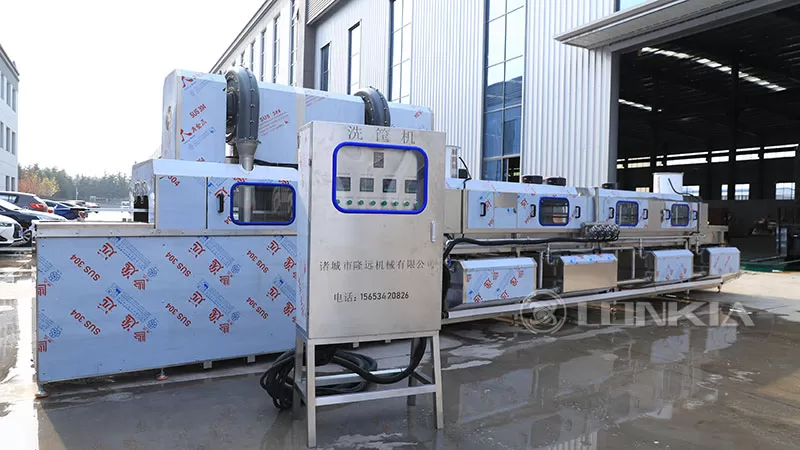In the dairy industry, maintaining hygiene and efficiency is essential. A milk crate washing machine is a crucial investment for both small and large-scale dairy operations, ensuring that crates remain clean, sanitized, and compliant with food safety regulations.

1. Why a Milk Crate Washing Machine is Essential
Milk crates are repeatedly used for transporting and storing dairy products, making them prone to bacteria buildup, residue, and contamination. A high-quality milk crate washing machine automates the cleaning process, saving time, labor, and water while ensuring consistent sanitation.
2. Choosing the Right Machine for Your Operation
The choice of a milk crate washing machine depends on your production scale and cleaning requirements.
Small-Scale Dairy Operations
For small dairy farms and local producers, a compact and semi-automatic washing machine is ideal. These models offer:
- Lower water and energy consumption
- Affordability and space efficiency
- Easy maintenance and operation
Large-Scale Dairy Operations
Industrial dairy plants require high-capacity, fully automated washing systems capable of cleaning hundreds of crates per hour. Key features include:
- High-pressure water jets for deep cleaning
- Automated conveyor systems for continuous washing
- Energy-efficient heating and drying functions
3. Benefits of Using a Milk Crate Washing Machine
Investing in a milk crate washing machine provides multiple advantages:
- Improved Hygiene & Compliance: Meets food safety standards and prevents cross-contamination.
- Cost Savings: Reduces manual labor, water, and detergent usage.
- Enhanced Productivity: Automates the cleaning process, ensuring a smooth production workflow.
Conclusion
A milk crate washing machine is a valuable asset for dairy businesses of all sizes. Whether you run a small farm or a large-scale processing plant, choosing the right machine ensures efficiency, hygiene, and long-term cost savings.

